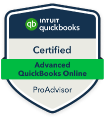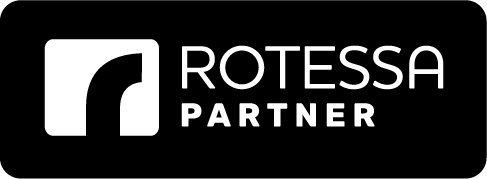
Often hailed as two of the best cloud-based solutions, QuickBooks and Xero have different features and benefits, and with the proper training, they can change how you manage your business.
As a necessary tool for small and medium businesses, accounting software makes life easier for business owners. In this article, we’ll compare the two programs, how these powerful tools can help you as a small business owner, and which is right for your business.
Interface and Usability: Ease of Navigation vs. Customization Power
QuickBooks
QuickBooks is known for offering a powerful, customizable dashboard. Although it takes a bit of time to learn how to use all the features, once familiarized, users can create custom workflows and dashboards that fit the unique needs of their business. From detailed reporting to customizable invoices, QuickBooks offers flexibility that caters to businesses with more complex requirements.
Xero
Xero is often praised for its clean, user-friendly interface that’s easier to navigate compared to QuickBooks. Its simplicity appeals to businesses with fewer accounting needs. However, while the interface is intuitive, its customization capabilities are more limited. This might not be an issue for freelancers or small startups but could be a hindrance for growing businesses that need more detailed tracking and reporting features.
Winner: QuickBooks Online is the better choice if your business requires more flexibility and customization. The ability to tailor features according to your needs ensures that you have a software solution that grows with your business.
Tax Compliance: GST/HST Tracking and Reporting
QuickBooks
One of QuickBooks’s standout features for Canadian businesses is its comprehensive tax compliance support. It automatically tracks GST/HST and other applicable taxes, ensuring your business stays compliant with federal and provincial regulations. QuickBooks also offers powerful tax reporting tools that can help simplify the preparation of tax filings, making it easier to navigate tax time.
Xero
While Xero offers basic tax compliance tools, it doesn’t match QuickBooks’s depth and flexibility when handling
Canadian-specific tax scenarios. Xero provides GST/HST support but lacks some of the automation and reporting tools that make QuickBooks valuable for Canadian businesses.
Winner: QuickBooks provides a better solution for businesses concerned with staying on top of Canadian tax regulations, with automated tracking and detailed reporting that make tax season easier to manage.
Payroll and Employee Management: Comprehensive Payroll Processing
QuickBooks
QuickBooks Online offers an integrated payroll solution designed specifically for Canadian businesses. It includes features like automatic tax calculations, direct deposit, payroll forms, and compliance with CRA requirements. The payroll feature is easy to set up and manage and can handle everything from tracking employee hours to generating pay stubs and managing deductions.
Xero
Xero’s payroll functionality is available but less integrated with the Canadian tax system than QuickBooks. While it provides basic payroll processing, businesses often need to use third-party apps to get the same functionality and compliance that QuickBooks offers natively.
Winner: QuickBooks offers a more comprehensive and fully integrated solution for businesses with payroll needs that are better suited to the Canadian market.
Reporting and Analytics: Insights and Customization for Better Decision-Making
QuickBooks
QuickBooks has comprehensive reporting capabilities. It allows businesses to generate various reports, from profit and loss statements to balance sheets. QuickBooks also supports deep customization of these reports, allowing users to filter by specific time periods, departments, or product lines. These detailed insights are crucial for businesses that want to stay on top of their financial performance.
Xero
Xero provides a solid set of standard reports, but it falls short in the level of customization that QuickBooks offers. Xero users may need additional apps or software integrations to create more complex or tailored reports. While it offers a quick overview of business health, it lacks the depth of reporting available in QuickBooks.
Winner: QuickBooks is the clear winner for businesses that need in-depth financial insights and customized reporting. Its flexibility in reporting helps businesses better understand their financial health.
Expense and Inventory Management: Detailed Tracking Capabilities
QuickBooks
For Canadian businesses, expense tracking is a breeze with QuickBooks. It allows users to easily import expenses, categorize them, and match them to the correct accounts. QuickBooks Online Plus and Advanced versions provide inventory tracking with tools for real-time tracking, stock alerts, and detailed inventory reports. This is ideal for businesses that stock and sell physical products and must keep track of their inventory.
Xero
Xero also provides basic expense and inventory management tools, but its inventory features are more suited to businesses with simpler needs. Xero’s inventory system is sufficient for small businesses or startups but lacks some of the advanced features that QuickBooks provides, such as inventory valuation and low-stock alerts.
Winner: QuickBooks provides the tools to easily manage complex operations for businesses needing robust inventory management and more comprehensive expense tracking.
Integrations: Extending Functionality
QuickBooks
QuickBooks has a vast ecosystem of third-party apps that integrate seamlessly with the platform. It integrates with popular tools like Shopify, PayPal, Square, Jobber, and hundreds more, allowing businesses to expand functionality to include CRM, marketing, and project management solutions. This makes QuickBooks highly adaptable to various business types and industries.
Xero
Xero also boasts a large marketplace of integrations, particularly in the eCommerce and time-tracking spaces. However, QuickBooks has a broader selection of apps and is often preferred by businesses that need more specialized tools. QuickBooks’ app ecosystem is also better suited to Canadian SMEs looking for comprehensive solutions.
Winner: QuickBooks has a more robust and extensive integration ecosystem, making it the better choice for businesses that need to connect multiple platforms and apps.
Pricing and Value: Maximizing ROI
QuickBooks
QuickBooks offers a few different pricing plans, starting at approximately $24/month for EasyStart and scaling up to $140/month for the Advanced plan. Each tier offers different levels of features, allowing you to choose the plan that best suit your needs. While QuickBooks may be more expensive than Xero at higher tiers, its rich feature set and Canadian tax compliance tools often justify the investment.
Xero
Xero’s pricing starts at $20/month for the Starter plan and scales to around $67/month for the Premium plan. While Xero is cheaper upfront, especially for small businesses with simpler needs, the lack of advanced features can become a limiting factor for growing businesses, making QuickBooks a better value in the long run.
Winner: QuickBooks may offer more value, even at a slightly higher price point., for businesses needing advanced features and greater flexibility
QuickBooks Online Training From Accounting by Sal
While QuickBooks is a feature-rich and powerful tool, getting the most out of it requires proper setup and training. Sal Rezai from Accounting by Sal offers 1-on-1 QuickBooks Online training to help businesses master the platform. Whether you’re switching from Xero, setting up QuickBooks for the first time, or need help understanding its more complex features, Sal can provide the guidance you need.
- QuickBooks Setup: Tailor QuickBooks to fit your business’s unique needs.
- Migration from Xero or Other Platforms: Seamless migration services ensure that your transition to QuickBooks is smooth and stress-free.
- Ongoing Training: Sal provides hands-on training to ensure that you understand how to maximize QuickBooks Online’s functionality.
QuickBooks Online Leads the Way
For Canadian SMEs, QuickBooks Online offers the features they need, better customization, and superior tax compliance compared to Xero. With the help of Accounting by Sal, businesses can unlock QuickBooks’ full potential, ensuring efficient financial management and the ability to scale with confidence.
Ready to confidently manage your business finances? Accounting by Sal’s personalized 1-on-1 QuickBooks Online training provides support and guidance while you master QuickBooks Online and unlock its full potential.














